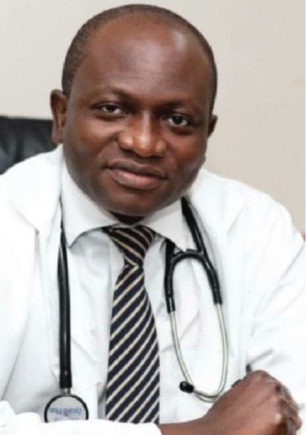
Protect your kidneys - Specialist advises
A Consultant Physician and Kidney Specialist at the Department of Medicine of the Korle Bu Teaching Hospital, Dr Winfred Baah, has advised people to protect their kidneys and not to do things that will harm them.
He mentioned some of the harmful practices to include recurrent kidney infections, also called pyelonephritis, smoking, drinking alcohol, not drinking enough water daily and obesity.
Other causes are family history of kidney disease, abnormal kidney structure and old age.
He also mentioned the top three causes or risk factors of chronic kidney disease in the country to be diabetes, high blood pressure and inflammation of the kidney's filtering units (glomeruli), known as Glomerulonephritis.
In an interview with the Daily Graphic, he mentioned the two main types of manifestation of kidney disease as acute kidney injury and chronic kidney disease.
“Your kidneys filter wastes and excess fluids from your blood, which are then excreted in your urine.
When chronic kidney disease reaches an advanced stage, dangerous levels of fluid, electrolytes and wastes can build up in your body,” he said.
However, he said untreated acute kidney disease could progress to a chronic condition, after a while.
Symptoms
Dr Baah said there were five progressive stages with regard to chronic kidney diseases, explaining that stages one to three, and in some cases, four, do not present any symptoms.
He said signs and symptoms of chronic kidney disease develop over time if kidney damage progresses slowly.
He mentioned the signs as nausea, vomiting, loss of appetite, fatigue and weakness, sleep problems, changes in the quantity of urine passed, and decreased mental sharpness.
“Edema, such as swelling of feet and ankles, arms, scrotum and symptoms in other parts of the body, including the lungs, which affects breathing, leading to an emergency situation, as well as feeling very sick and unwell, are symptoms as well,” he said.
The others, he said, included muscle twitches and cramps, persistent itching, chest pain, fluid build-up around the lining of the heart, shortness of breath, fluid build-up in the lungs and high blood pressure (hypertension) that's difficult to control.
He advised against using unprescribed pain relievers such as aspirin and ibuprofen, as well as taking such drugs for a long time.
He encouraged people to maintain a healthy weight and avoid smoking, as cigarette smoking could damage the kidneys and worsen the condition of an already damaged kidney.
He said treatment for stage one to stage four kidney disease was known as conservative management, “where we basically control blood pressure, control diabetes if any, treat all infections, asking patients to avoid taking anything that can affect the kidney, such as herbal medication and other hospital medications that could worsen the situation.”
Others, he said, include putting patients on a diet to check the intake of things that could harm the body, such as a high intake of potassium that could lead to slow progression to stage five known as end-stage renal disease, at which point dialysis or kidney transplant is required.
Dialysis is required optimally three times a week for life or until a patient gets a kidney transplant.
“A kidney transplant involves surgically giving a healthy kidney from a donor to a patient.
Transplanted kidneys can come from deceased or living donors.
You will need to take medications for the rest of your life to keep your body from rejecting the new organ,” he explained.
Writer’s email
